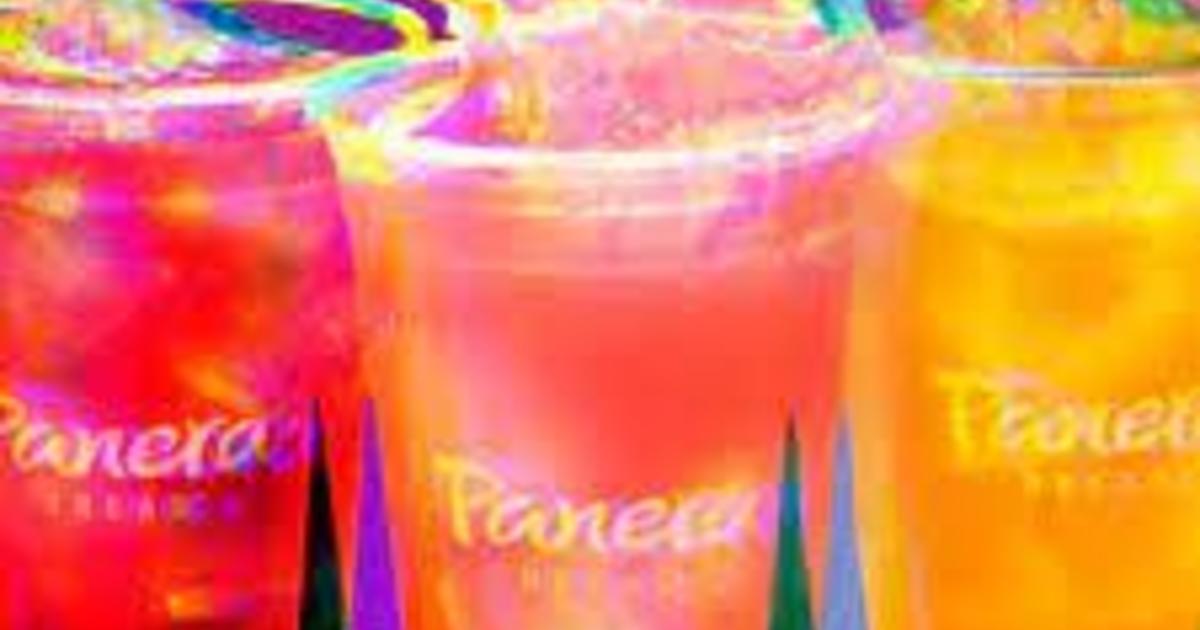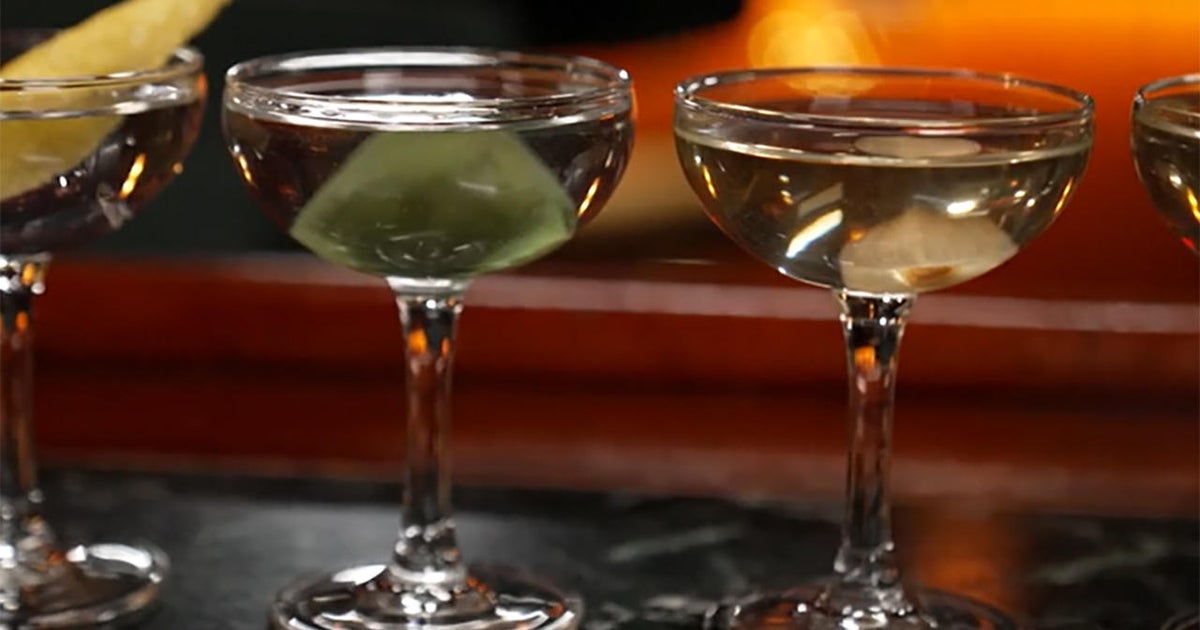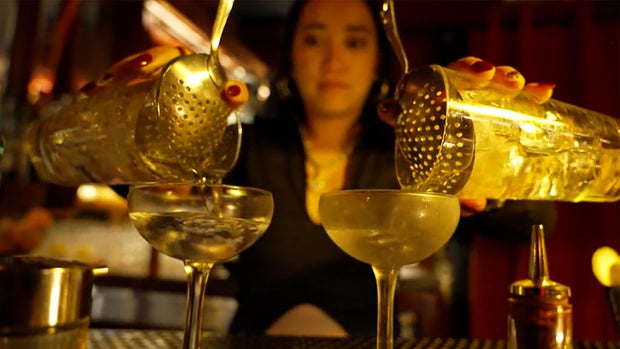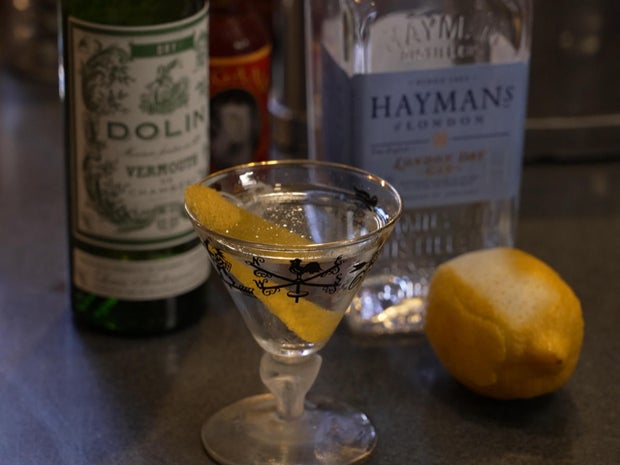CBS News
Panera Bread’s caffeine-fueled lemonade cited in another wrongful death lawsuit

Panera Bread’s Charged Lemonade is being blamed in the death of a second person, according to a lawsuit filed on Monday.
Dennis Brown of Fleming Island, Florida, drank three of the drinks — unknowingly consuming high levels of caffeine — at a local Panera on October 9 before suffering a fatal cardiac arrest while walking home, according to the suit filed in Superior Court in Delaware.
Brown, 46, suffered from a chromosomal deficiency order, developmental delay and ADHD, yet lived on his own and worked as a grocery store employee for nearly 17 years, according to the complaint. He also had high blood pressure and did not consume energy drinks, it stated.
The Charged Lemonade was not advertised as an energy drink and was offered alongside Panera’s noncaffeinated or less-caffeinated drinks, with no warnings about any potentially dangerous effects of drinking concentrated amounts of caffeine and sugar, according to the suit filed on behalf of Brown’s family.
The wrongful death suit follows another complaint filed in October by the family of 21-year-old Sarah Katz, a college student with a heart condition who died in September 2022 after drinking a Charged Lemonade beverage. The suit alleged that the product included no warning despite containing more caffeine than Red Bull and Monster Energy Drink combined.
High levels of caffeine and sugar
A large, 30-ounce Mango Yuzu Citrus Charged Lemonade contains 390 milligrams of caffeine and 124 grams of sugar, according to the suits filed against the company, as well as to an ingredient list posted on the company’s website. Yet another Panera page listed the same product and size as containing 235 milligrams of caffeine and 74 grams of sugar. The higher caffeine and sugar counts involve the same product without ice, according to Panera.
The beverages labeled by Panera as Charged Sips should be consumed in moderation, the company’s website now states. “Not recommended for children, people sensitive to caffeine, pregnant or nursing women,” a banner on the site currently reads.
One of the attorneys involved in the legal actions interpreted the company’s moves since the initial suit was filed as a sign the cases have merit.
“Panera has taken actions to decrease the caffeine in the product, they’ve put up additional warnings and they placed it behind the counter now so it’s not accessible to all,” Elizabeth Crawford, a partner at Kline & Specter, told CBS MoneyWatch.
“It was good risk management on their part to make those changes and make sure this doesn’t happen to someone else,” she added.
A Panera spokesperson declined to comment on whether the company had reduced the amount of caffeine in Charged Lemonade.
A healthy adult can safely consume 400 milligrams of caffeine a day, the equivalent of about four cups of coffee, according to the Food and Drug Administration. Sugars should make up less than 10% of total calories, meaning 50 grams for a 2,000-calorie diet.
The FDA in October said it was gathering information on Katz’s death. The agency did not immediately respond to a request for comment on Tuesday.
“Dennis is part of a vulnerable population that should be protected. And Panera failed to protect Dennis. Dennis’ family, just like the Katz family, hopes this message gets out to prevent this tragedy from happening again to anyone else,” Crawford said.
Panera denies connection
Panera expressed sympathy for Brown’s family, but disputed a link between his death and its caffeinated drinks.
“Based on our investigation, we believe his unfortunate passing was not caused by one of the company’s products. We view this lawsuit, which was filed by the same law firm as the previous claim, to be equally without merit. Panera stands firmly by the safety of our products,” a company spokesperson said.
Privately held by German investment firm JAB Holding Co., Panera operates more than 2,000 eateries across the U.S. and Canada.
CBS News
What makes a martini a martini?

Nowadays, what makes a martini a martini? Robert Simonson, who wrote a book about the martini, said, “It’s funny: it’s strict and loose at the same time.”
Ten Speed Press
Everyone seems to have an opinion about the cocktail: “Ingredients, proportions, garnishes – it’s all subject to debate,” Simonson said. “I’m a purist. I would think it needs to be gin and vermouth. But I’m willing to bend and say, ‘Okay, vodka and vermouth as well.’ [However,] if there’s no vermouth in there, I don’t know how you can call it a cocktail.”
Simonson says the martini was probably named after a vermouth company. It was invented in America in the 1870s or ’80s when bartenders mixed gin with vermouth, a fortified wine made with herbs and spices. “It’s a very big player in cocktail history,” he said.
In the early 20th century, the “very-dry” martini became very-popular: Ice cold gin or vodka, garnished with a lemon twist, or an olive, or an onion, but only a little vermouth (or maybe not even a little).
Samantha Casuga, the head bartender at Temple Bar in New York City, says the reason why many people might not want vermouth in their martini is because, for years, vermouth was stored improperly. “It should be in the fridge,” she said.
CBS News
Casuga’s classic martini is two parts gin, one part vermouth, with a twist of lemon. She suggests that you probably shouldn’t order it the way James Bond does – shaken, not stirred. Casuga says she’s always stirring, but some people like the show behind the bar when a bartender shakes their cocktail. “Definitely, people love a good shake,” she said.
People also love to have a martini made just the way they want it. But Casuga understands why they might be so specific: “To have your own preferences, not only listened to and then executed, is, like, that’s luxury itself.”
Writer Robert Simonson says that a martini can also add a little luxury to your Thanksgiving. “It actually makes very good sense for Thanksgiving,” he said. “It will whet your appetite for the meal to come.
“There are very few American inventions more American than the martini. So, an American holiday, American drink.”
CBS News
For more info:
Story produced by Mary Raffalli. Editor: Remington Korper.
“Sunday Morning” 2024 “Food Issue” recipe index
Delicious menu suggestions from top chefs, cookbook authors, food writers, restaurateurs, and the editors of Food & Wine magazine.
CBS News
NATURE: Turkeys in South Dakota

Watch CBS News
Be the first to know
Get browser notifications for breaking news, live events, and exclusive reporting.
CBS News
An Italian masterpiece: Cacio e pepe

Watch CBS News
Be the first to know
Get browser notifications for breaking news, live events, and exclusive reporting.




